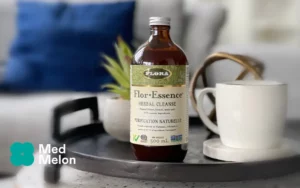Scientific Names of Ginger:
Zingiber officinale Roscoe [Fam. Zingiberaceae]
Forms:
Coarsely cut, dried rhizome for making infusions; ginger root tincture
Traditional Usage:
– Anorexia
– Anti-inflammatory
– Antioxidant
– Anthelmintic
– Antiviral
– Bile Stimulant
– Bone and Joint Conditions
– Bronchitis
– Cleansing
– Colic
– Detoxification
– Digestive Disorders
– Dizziness
– Dyspepsia
– Flatulence
– Gastrointestinal Disorders
– Indigestion
– Intestinal worms
– Morning Sickness
– Nausea
– Parasites (intestinal worms)
– Seasickness
– Ulcers
– Worms
Overview:
Ginger, Zingiber officinale Roscoe [Fam. Zingiberaceae], is a popular spice use around the world. The medicinal use of ginger dates back to ancient times as indicated by early medical texts in India, China, Greece, Rome and Arabia. Traditionally, ginger is used for treating flatulent colic and indigestion. The German Commission E approves it for treating dyspepsia and preventing motion sickness. The British Herbal Compendium also recognizes ginger for these purposes, as well as for treating morning sickness during pregnancy, for stimulating the appetite in anorexia and for treating bronchitis and rheumatic discomforts. A recent systematic review of randomized controlled trials on it for treating nausea and vomiting examined six studies and found that these studies collectively favoured ginger over placebo. Out of three studies on the effectiveness of ginger for treating postoperative nausea, two studies found that it was superior to placebo and equally effective as metoclopramide. One study was found for each of the following conditions: seasickness, morning sickness and chemotherapy-induced nausea. These studies also collectively favoured ginger over placebo. One study of 80 navel cadets showed that taking one gram of powdered gin. before sailing reduced symptoms of seasickness including dizziness and nausea by 38 percent and frequency of vomiting by 72 percent. In a prospective, randomised, double-blind trial, the incidence of postoperative nausea and vomiting was measured in 120 women presenting for elective laparoscopic gynecological surgery on a day stay basis. The incidence of nausea and vomiting was similar in patients given metoclopramide and ginger (27% and 21%) and less than in those who received placebo (41%). Another study comparing ginger and metoclopramide against nausea after major gynecological surgery found the same significant results. Based on animal studies, ginger and its juice also reverse cisplatin-induced delay in gastric emptying that causes nausea and vomiting.
Active Ingredients:
Ginger rhizome contains: 4.0-7.5% oleoresin containing phenols such as gingerol and their related breakdown products, shogaols; fats; waxes; 1.0-3.3% volatile oil containing sesquiterpenes such as beta-bisabolene, (-)-zingiberene, beta-sesquiphellandrene and (+)-ar-curcumene; monoterpenes such as geranial and neral; carbohydrates and 40-60% starch; 9-10% protein; 6-10% lipids containing triglycerides, phosphatidic acid; lecithins; free fatty acids; vitamins such as niacin and A; minerals; and amino acids.
Suggested Amount:
Ginger is generally used as a spice in condiments and curries. Infusions can be made using 0.25-1.0g in 150ml of boiled water, three times daily. Powdered rhizome is taken with the same dosage recommendation as above. Fluidextract 1:1 (g/ml) can also be taken with the dosage of 0.25-1.0ml, three times daily. Tincture 1:5 (g/ml) is recommended at the dosage of 1.25-5.0 ml daily. Standardized extracts of its rhizome can also be used with the recommended dosage of two capsules of 250mg taken 30 minutes prior to the expected onset of symptoms and then after 4 hours, two capsules every four hours.
Drug Interactions:
None known
Contraindications:
Persons with gallstones should first consult their physician.
Side Effects:
None known
References:
Blumenthal M, Goldberg A, Brinckmann J 2000. Herbal Medicine: Expanded Commission E Monographs. Copyright American Botanical Council. Publ. by Integrative Medicine Communications, 1029 Chestnut Street, Newton, MA 02464. Pp. 153-159.
Bone ME, Wilkinson DJ, Young JR, McNeil J, Charlton S. 1990. Ginger root–a new antiemetic. The effect of ginger root on postoperative nausea and vomiting after major gynaecological surgery. Anaesthesia. 1990 Aug; 45(8): 669-71.
Ernst E, Pittler MH. 2000. Efficacy of ginger for nausea and vomiting: a systematic review of randomized clinical trials. Br J Anaesth. 2000 Mar; 84(3): 367-71. Review.
Phillips S, Ruggier R, Hutchinson SE. 1993. Zingiber officinale (ginger)–an antiemetic for day case surgery. Anaesthesia. 1993 Aug;48(8):715-7.
Sharma SS, Gupta YK. 1998. Reversal of cisplatin-induced delay in gastric emptying in rats by ginger (Zingiber officinale). J Ethnopharmacol. 1998 Aug; 62(1): 49-55.




